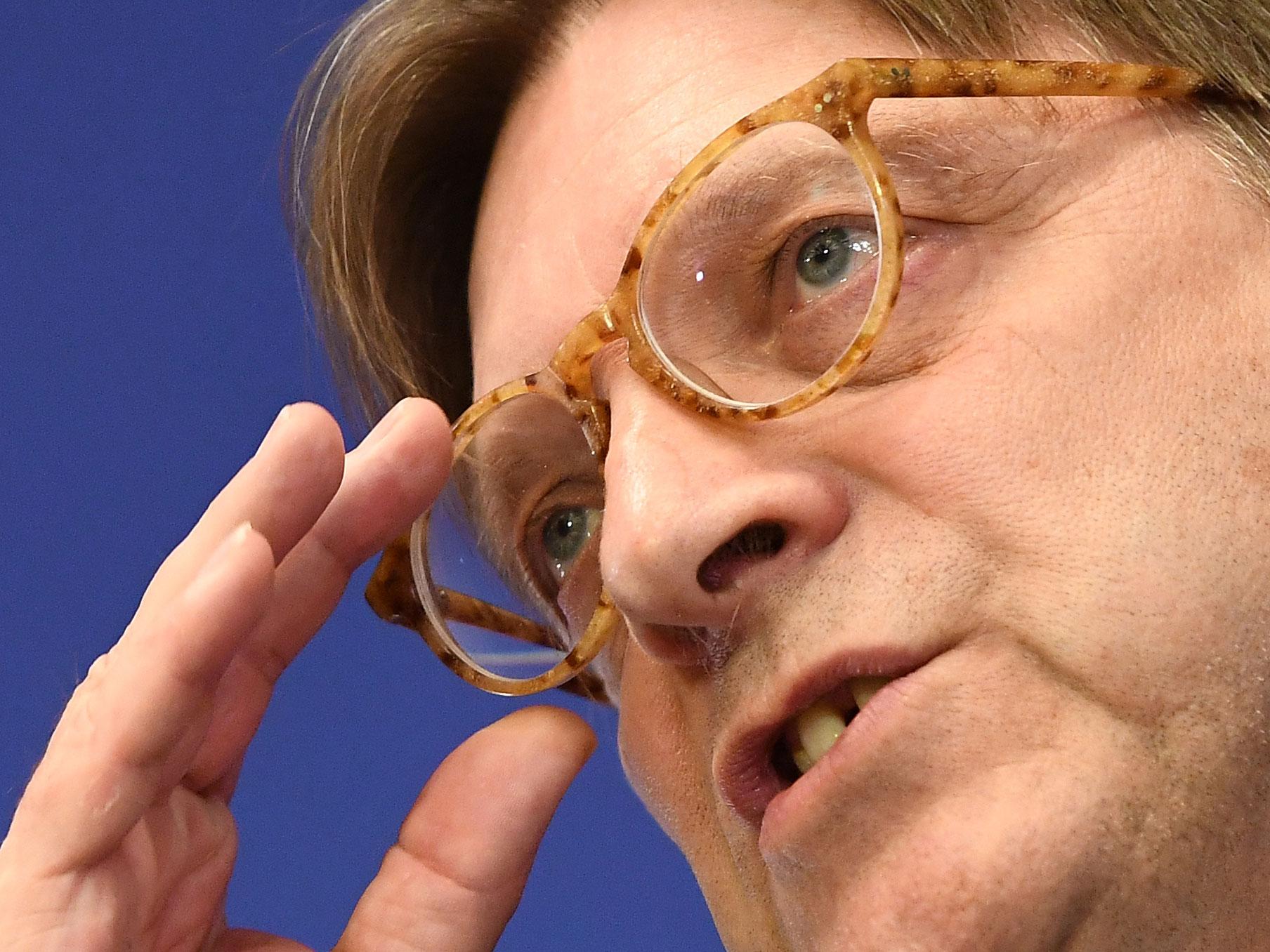Your support helps us to tell the story
From reproductive rights to climate change to Big Tech, The Independent is on the ground when the story is developing. Whether it's investigating the financials of Elon Musk's pro-Trump PAC or producing our latest documentary, 'The A Word', which shines a light on the American women fighting for reproductive rights, we know how important it is to parse out the facts from the messaging.
At such a critical moment in US history, we need reporters on the ground. Your donation allows us to keep sending journalists to speak to both sides of the story.
The Independent is trusted by Americans across the entire political spectrum. And unlike many other quality news outlets, we choose not to lock Americans out of our reporting and analysis with paywalls. We believe quality journalism should be available to everyone, paid for by those who can afford it.
Your support makes all the difference.The Brexit deal struck between Theresa May and the European Union will be turned into a legally binding treaty before trade framework talks are allowed to begin, The Independent understands.
The move by the EU to tighten up conditions comes after David Davis said the deal was a mere “statement of intent” rather than binding, prompting an outcry from the Brussels officials and the Irish government and a prompt climb-down by the Brexit Secretary.
Speaking in the European Parliament, Brexit coordinator Guy Verhofstadt said the episode had convinced him that the deal should be written into a binding treaty “in the coming weeks when we start the next phase of negotiations” rather than later.
A European Commission source also confirmed to The Independent that the deal would be written into a legally binding treaty as early as January. Senior EU officials have said that full talks on the trade framework will not begin till March, with the transition period occupying negating teams until then. Full trade negotiations going beyond a framework are only set to begin after Britain has left the EU in March 2019.
“I spoke to [David Davis] yesterday on the phone and he assured me it’s absolutely not his intention nor that of the British government to backtrack on their commitments,” Mr Verhofstadt said.
“I take note of that and I think the best way to secure this is that in the coming weeks we transpose all these commitments into the legal text. That’s the best way to do it, and to do it not in the coming months, but in the coming weeks, when we start the next phase of the negotiations.”
Chief negotiator Michel Barnier, who could seen nodding from the sidelines of the European Parliament chamber as Mr Verhofstadt spoke, is understood to be in full agreement with his counterpart on the issue.
Mr Verhofstadt's comments came as the European Parliament backed a move to the next round of Brexit talks with a vote.
After speaking to Mr Verhofstadt on Tuesday, Mr Davis said “he agreed on the importance of the joint report”. He added “Let’s work together to get it converted into legal text as soon as possible.”
Group leader after group leader stood up in the Strasbourg European Parliament debate on Wednesday to criticise Mr Davis’s comments.
“Until some days ago I was quite optimistic about this Council, that there might actually be some steps ahead … but then that didn’t last so long. On Brexit even though we had an agreement, then it was put into question in London and that of course raises a lot of questions for any sort of agreement that we’re making with our counterparts,” Ska Keller, Green group leader said.

“And I would say especially about our future relationship – because if we can’t trust one another, if you’re not sure that whatever you agree is actually going to hold, then this is going to put a major strain on any future relations.
“I would also add that not just to the European Union – because if the UK wants to be a global player and find their new friends elsewhere, then that’s going to be just as tricky, or even more tricky – because we’re used to it, we have a long relationship, but others might find it even more bewildering if there’s this untrustworthiness on the other side.”
Mr Davis had told the BBC at the weekend: “This was a statement of intent more than anything else. Much more a statement of intent than it was a legally enforceable thing.”
But he later told LBC: “What I actually said yesterday, in terms, was we want to protect the peace process, we want to protect Ireland from the impact of Brexit for them. And I said this was a statement of intent which was much more than just legally enforceable.”

Join our commenting forum
Join thought-provoking conversations, follow other Independent readers and see their replies
Comments